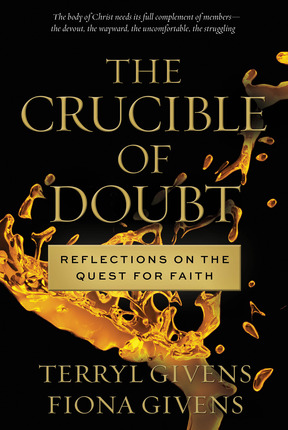“I know the Church is true, and Joseph Smith was a true prophet, and the Book of Mormon is true. . . ”
Those are three of the top five elements of a testimony you might hear on any Fast Sunday. Call it a Mormula: a Mormon formula. (The other two greatest hits are: “I’m grateful for my family” and “inthenameofjesuschristamen.”)
True, true, true. We are all about knowing the truth, or at least claiming to know.
But what if you don’t know, but only believe? Or what if you can’t even believe yet, but have the merest hint of a desire to believe?
Alma 32 suggests that even people with no more than a desire to believe have a testimony, and if that’s the case, then I have a testimony that the Church offers truth. There are things I know — that God lives and answers prayers, that this Jesus guy is the one I want to follow throughout my life, and that the Book of Mormon speaks to me like scripture. I know I love the Church.
But I do not, and have never, known that the institutional church is “true” in the way that other Latter-day Saints seem to indicate with those six Mormulaic words: that it is not only true, but the truth, the whole truth, and nothing but the truth.
Pure, entire, and unadulterated. Uncorrupted by human flaws.
If the Church is true, then how is it true? Is it true in its people, in the ekklesia of the gathered faithful? I can assent to that. Or is it true in all its authoritarian structures and programs and hierarchies? That does not, as the saying goes, ring quite true for me.
Today in our book club around The Crucible of Doubt we’ll be tackling the question of truth, one of the overarching themes of chapters 3 and 4. (You can catch up on last week’s discussion about doubts here.) Chapter 3 takes on the truth of the Church, and chapter 4 the truth of the Scriptures.
Eugene England, one of my favorite Mormon writers, once famously said that the Church is as true as the gospel. And when I’m reading his work, I actually believe it. But how is it true, and for whom?
And while we’re at it, here are some other discussion starters to help us reflect on the themes in these two chapters:
- Chapter 3 opens with a quote that indicates Jesus invented true religion, and human beings invented churches. How does that square with the “I know the Church is true” statements that open every standard LDS testimony?
- How do the authors redefine heaven as an experience of perfected relationships rather than “a location to which good people are assigned”? How might our understanding of failures within the Church change or soften if we adopted this definition of eternity?
- Have you ever been on the receiving end of someone in the Church using Scripture as a weapon? Have you wielded it as a weapon?
- The authors gently suggest that Mormons have needlessly adopted an inerrantist view of Scripture when our own theology and scripture does not require this of us. What do you think?
You guys did a great job overall of keeping last week’s discussion civil and on-topic. Sniff — you made me proud. Keep it up, so that our conversation can be uplifting and constructive even if we don’t agree.
P.S. For next week, we’re reading chapters 5 and 6 on “the perils of hero worship” in Mormon life. That should be interesting.
All the posts in this series on doubt:
- Kickoff here: Mormon doubts? Let’s talk about them
- Chapters 1 & 2 discussion here: How do Mormons deal with doubt?
- Chapters 2 & 4 here: “I know the Church is true” and other Mormon muddles
- Chapters 5 & 6 here: The dangers of idolizing Mormon prophets
- Chapters 7 & 8 here: Mormonism as “the only true and living church”
- Chapters 9 to 11 here: Staying Mormon when God is silent







